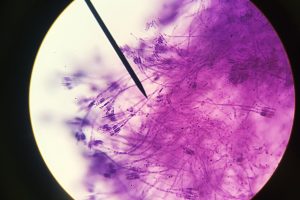Science & Health FAQs

Quick Facts
- 85 percent of full-time faculty hold earned doctorates.
- Nearly 100 percent of alumni polled reported in recent surveys that they were satisfied with their educational and spiritual experience and preparation.
- Nearly 100 percent of graduates who apply are accepted into graduate school programs in various science fields, dental schools, physician assistant master degree programs, nursing graduate programs or pharmacy doctorate programs.
- 90 percent of graduates who apply are accepted to physical therapy masters degree programs.
- More than 80 percent of graduates who apply are accepted to medical school.
- 75 percent of graduates who apply are accepted to veterinary school.
FAQs
▾ What can I do with a science degree?
Over half of our students go on to some form of graduate training, including medical school. However, it is not necessary to do graduate work; there are actually more jobs available at the BA level than there are jobs requiring advanced degrees. There is also considerable flexibility in career paths. Chemistry graduates often enter careers or graduate programs such as quality assurance, environmental science, geochemistry and biophysics. A biology degree can lead to careers such as naturalist, microbiologist or pharmaceutical sales.
▾ How do I prepare for Medical School or medical careers?
Medical schools have a prescribed list of science prerequisites including general and organic chemistry, general biology and a year of physics. While most students taking these courses choose one of the science majors, many Asbury students have entered medical school with majors such as psychology or history.
Professional programs such as dentistry and physical therapy do not have consistent admissions requirements. It is important to check the requirements of your preferred school. You may also want to talk to Asbury's medical professions advisor, Dr. Branan.
Most schools prefer students who are broadly educated. Asbury's liberal arts training is an excellent choice. Over the past 10 years, more than 80% of Asburians who apply have been accepted by one or more medical programs.
▾ I am interested in forensic science. What major should I take?
In the real world, forensic science is a diverse collection of professions. The person who specializes in evidence collection does not do DNA analysis or trace chemical analysis.
Both the chemistry and biochemistry majors at Asbury provide solid training in analytical chemistry, and students learn how to operate all of the equipment in our labs. The senior research course, required of all our majors, is often integrated with summer internship programs from labs across the country and can be used to develop expertise in a focus area.
▾ How do Asbury graduates compare to students from other universities?
Other schools may have larger departments and bigger budgets, but you can not get a better training. Over the past five years, 100% of Asbury graduates who applied to graduate schools have been accepted.
Many of our students have done their senior research with professors at the University of Kentucky and other major institutions, and every year we receive compliments about the quality, knowledge, and work ethic of our students.
▾ Are there opportunities for research?
All science majors at Asbury do a senior research project. The project combines literature research, lab research, and writing a formal paper. A number of our students have presented their papers at the Kentucky Academy of Sciences. Some students have had their work published in professional journals.
Many students do their research at Asbury. Many others choose to do their research off-campus, usually during the summer, at labs and facilities across the country. Students often receive internships or stipends for summer research.
▾ How well do home-school students do at Asbury?
In general, home-school graduates do just as well as public school graduates. Some students are less experienced in the laboratory, but they often show superior time management and study skills.